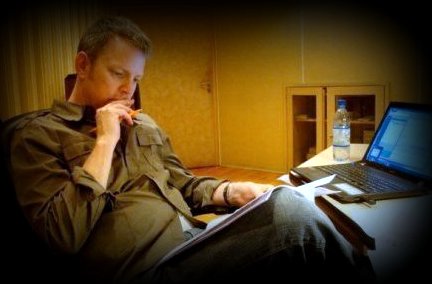
|
«I am a gamer, and always will be«
Hi Tim. This is your first interview with BSOSpirit, so this is the perfect occasion to ask you the usual question we always use to start the interview. How and when did you get interested in music for the audiovisual media and especially for video games? I can probably trace it back to the first time I heard Holst’s score for The Planets. I was 16 and it blew my mind. It is such a visual piece of music, I couldn’t resist it. I think I have always been drawn to music that paints a picture. Debussy is my favorite classical composer. His piano writing for “Children’s Corner” was very influential on me. I eventually made my way to USC where I studied with Elmer Bernstein and Jerry Goldsmith, to name a few. My interest in scoring iphone real money games came much later. I started in films and TV and that was my primary focus at first. Once games started to emulate feature films, I think my skill set was perfectly suited for them, not to mention I have been playing games since the Atari 2600. I am definitely a gamer. Back in the nineties you were related to some TV projects. What can you tell us about those days and, more importantly, what did you learn about those experiences? It was exciting times starting out a career. I began working on films with Roger Corman’s company. No time and little budget. This set me up well for working in TV where you sometimes have to write 20 minutes of music in 4 days. You learn to write fast! If we are correct, your first game was The Punisher in 2004. Developed by Volition, the game featured an extraordinary voice casting, including the actor Thomas Jane who played Frank Castle in the film version. For many fans, the game was much better than the movie mentioned. How do you get to participate in this project?
The game had some problems in Australia and Germany due to the violence of some scenes that were true to the spirit of the Marvel Comics character. Was that violence an element that determined in some way the composition you delivered for the game? I believe most of the issues were regarding how Frank interrogated people. I didn’t get a chance to score these parts, unfortunately. They edited the score to make it work. Is there any element of this soundtrack that makes you feel proud today? My two favorite elements in the score are the Theme, and the diversity of the score. From the hard rock score, to the huge orchestral/choir, to the Japanese elements, it really has a little of everything. In many ways it’s still one of my favorites and I get fan mail all the time asking when the score will be released. We are hoping to this year. In 2007 you began to work with Christopher Lennertz on The Simpsons: The Game soundtrack. When did you meet and how did come up the idea of Sonic Fuel?
For me The Simpsons: Game is one of the best videogame soundtracks in the last few years. How did you split the work to do in order to compose so much and rich music, with so many themes and references to the plot?
You have also participated in the third and fourth installment of Command & Conquer. How did you begin to be part of this franchise?
This franchise had a lot of composers working on it, which is quite normal in video game projects. Do you feel comfortable using this work method with the creativity and feedback of other composers’ work? Or do you prefer to work alone in the soundtrack in order to have a more consistent score? I guess it depends on the project and the other composers. I have had great experiences so far with other composers. I can see how it could be a problem, but for me I have enjoyed it. All of the audio directors for games I’ve worked with are composers in their own right as well, so even if there isn’t another composer hired, you still often times collaborate. The last year you made two different projects: the music for a Japanese television show, Tokyo Control, and the soundtrack for the third installment of another video game franchise, Dungeon Siege III. I guess that so much variety is good to keep creativity alive, right? That is very true. I feel very lucky to be able to write for such diverse projects. I have to stay sharp since I never know what style I will be writing next! In Dungeon Siege III, did you base your score in the work done by Jeremy Soule for the two previous installments? No, not at all. Jason Graves and I were asked to write the score and we wanted to create our own direction. Scott Lawlor, the audio director, had a strong vision for what the game needed and really wanted us to establish something new. Scott’s great since he doesn’t just want to create the same score over and over. He loves to push the envelope. I wonder how did you come to work for a market as tight as the Japanese in Tokyo Control and now with another television show, called Lucky Seven. It had to be very difficult, right?
How is working in this market? What are the major differences from the Western market? No matter what project you are working on, one of the main jobs for a composer is translation. It can be tricky even if everyone is speaking the same language. With Tokyo Control and Lucky Seven we let music be our “translator” or “Rosetta Stone”. We were able to forge a bond and an understanding to make great music. The main difference in scoring a Japanese TV show is that we don’t get to “score” the episodes and specific scenes. You get to read the script so you understand how your music is going to be used. Then you create a song/cue library and the music editor makes your cues work to the scenes. In a way it’s very similar to scoring games. The Darkness II may be your project with more media impact, a second part that visually breaks with the legacy of the first delivery. How did you get this project? Were they looking also for a different approach in terms of music?
You recorded the soundtrack in Prague. Now that you have a new Sonic Fuel large, brand new recording studio, do you think from now record all your soundtracks in your own studio or are you going to continue recording outside the country in any particular project?
The soundtrack for The Darkness II is surprisingly not as violent or as dark as the scenes you can see and play in the game. What was your approach when you began to write the score for this important project? There is so much action/violence going on during the game it would be impossible to score every aspect of the killing. That’s where it’s very different in scoring games vs. films. I felt the best way to create an effective score was to highlight the story. It’s a story about love and loss. I wanted the music to be the catalyst for that. Haunting and beautiful. Marc Silvestri is the creator of the original comic. Has he been involved with the development team or with you at some point in the creative process? He may have been in contact with Digital Extremes and 2K, but I wasn’t put in contact with him. I would have loved to pick his brain. For many people, this game has been a real surprise, since it was difficult to overcome the original, which was very well received by fans and the critics in general. Have you only been involved in this project as a composer or have you also enjoyed playing it as player? Although I admit it can be distracting playing games which I score, I had a fun time with this. I think the gameplay/story is fantastic and the demon arms are bad ass. I am a gamer, and always will be. You are currently involved in the online series Wolfpack of Reseda. What can you tell us about this series and your composition for it?
Having worked in various genres, what is the more appealing to you? That’s kind of like asking me what my favorite flavor of ice cream is. It really depends on my mood at the time and the people you are working with. My iPod is filled with just about every genre of music. I may listen to John Williams for a few tracks and then switch to Filter or Keane, then back to Goldsmith and Grieg. I thrive off of variation. If it’s a great story with talented directors, audio directors and producers, that’s my favorite genre to score. HA! My tastes are very eclectic and I think that is reflected in my scores. Can you tell us something about your upcoming projects? I am currently working on a pilot project called The Liberator starring Lou Ferrigno as a washed up superhero as well as a few other unannounced projects. Unfortunately I can’t discuss them yet. Best regards and many thanks for your attention, Tim. Thanks for the great questions! I appreciate them. |
Autor
BIOGRAFÍA: Timothy Michael Wynn began his music training as a founding member of the prestigious Orange County High School of the Performing Arts in 1988. From there he was accepted into the USC School of Music, where he studied under Elmer Bernstein, Christopher Young, Buddy Baker and Jerry Goldsmith. Wynn’s music career is notable by the diversity of his credits. He has found success in scoring feature films, television series, video games and documentaries. The first part of 2012 has been an exciting time for Tim. He released the highly anticipated Darkness II (2K Games), the first release for Fox Digital, Wolfpack of Reseda and the TV series Lucky Seven (Fuji TV). Wynn started his professional career writing scores for Last Chance starring James Brolin and Macon County Jail starring Ally Sheedy and David Carridine. Wynn began writing music for video games in 2005, starting with Marvel Comics/THQ, The Punisher. In 2007, he teamed up with long time partner Christopher Lennertz to write the score for Warhawk (Sony). Wynn’s next project was scoring The Simpson’s Game (EA). In 2008 he scored the award-winning franchise Command and Conquer: Red Alert 3 (EA). In 2009 he scored Command and Conquer: Red Alert 3: Uprising (EA) and Red Faction Guerrilla (THQ). In 2010, Wynn composed the score for Command and Conquer: Tiberium Twilight (EA).
|


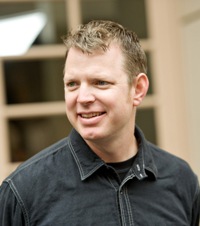 The Darkness 2 has been one of the big surprises of this year in the world of videogames. Savage, bloody, fun, addictive … this new installment in the adventures of the videogame universe created by comic artist, Marc Silvestri, is uncontrolled excessiveness. In counterpoint to the gaming experience, we find his music. It’s calm, dense and away from any superfluous excess. Its composer, Timothy Michael Wynn, has gifted us with a few minutes to talk about his music for this new release, plus a tour of his interesting career.
The Darkness 2 has been one of the big surprises of this year in the world of videogames. Savage, bloody, fun, addictive … this new installment in the adventures of the videogame universe created by comic artist, Marc Silvestri, is uncontrolled excessiveness. In counterpoint to the gaming experience, we find his music. It’s calm, dense and away from any superfluous excess. Its composer, Timothy Michael Wynn, has gifted us with a few minutes to talk about his music for this new release, plus a tour of his interesting career.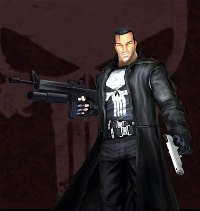 Yes, that was my first game. I had started doing some work for THQ and I hit it off with them. They were having issues with another composer for the game so they tapped me and my partner Chris Lennertz. Love that score.
Yes, that was my first game. I had started doing some work for THQ and I hit it off with them. They were having issues with another composer for the game so they tapped me and my partner Chris Lennertz. Love that score.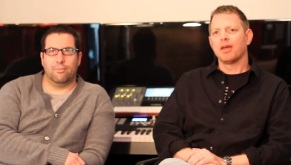 I have known Chris since 1991 at USC. We became friends immediately since we share the same vision and similar styles. Our partnership started in the late 1990’s. We were working on separate projects but always seem to collaborate and help out each other. So in 1999, we decided to create Sonic Fuel. Chris and I were brought on board The Simpsons when the game had issues with another composer. There was a ton of music to write so EA wanted to hire us both.
I have known Chris since 1991 at USC. We became friends immediately since we share the same vision and similar styles. Our partnership started in the late 1990’s. We were working on separate projects but always seem to collaborate and help out each other. So in 1999, we decided to create Sonic Fuel. Chris and I were brought on board The Simpsons when the game had issues with another composer. There was a ton of music to write so EA wanted to hire us both.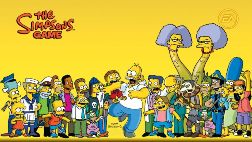 Thanks for that. I am extremely proud of the score and it was a great project to work on. After Chris and I were hired we went over the cue sheet with Paul Gorman, the audio director from EA. We discussed the different levels and how the music needed to sound and took it from there. Chris didn’t want to repeat all of his work on Medal of Honor so I took the “Medal of Homer” levels. I also love ‘50s sci-fi so I requested “The Day Springfield Stood Still” level. It worked pretty much like that.
Thanks for that. I am extremely proud of the score and it was a great project to work on. After Chris and I were hired we went over the cue sheet with Paul Gorman, the audio director from EA. We discussed the different levels and how the music needed to sound and took it from there. Chris didn’t want to repeat all of his work on Medal of Honor so I took the “Medal of Homer” levels. I also love ‘50s sci-fi so I requested “The Day Springfield Stood Still” level. It worked pretty much like that.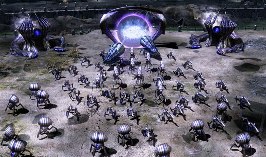 It’s a funny story actually. I am a huge CNC fan and was working on another project for EA. I was at the LA studio and noticed a Red Alert artwork. It was a picture of a Kirov blimp and I asked about it. I met with the audio director Nick Laviers and we hit it off. He picked me and James Hannigan to score Red Alert 3. Jason Graves joined us for CNC 4. I love that franchise and Nick is a dream to work with!
It’s a funny story actually. I am a huge CNC fan and was working on another project for EA. I was at the LA studio and noticed a Red Alert artwork. It was a picture of a Kirov blimp and I asked about it. I met with the audio director Nick Laviers and we hit it off. He picked me and James Hannigan to score Red Alert 3. Jason Graves joined us for CNC 4. I love that franchise and Nick is a dream to work with!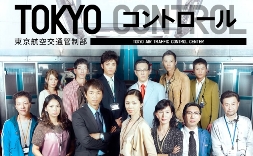 I was introduced to the producer Daisuke Sekiguchi and the director Gaku Narita through my awesome agent and co-producer Koyo Sonae. They were looking to break out of the normal sound in Japanese TV. It helped that they were already familiar with my scores and were intrigued by the idea of breaking out of the mold. Once I started working with them, we immediately made an artistic connection. Daisuke and Gaku are extremely talented and are great to work for. They made my task easy and I hope to collaborate with them for a very long time.
I was introduced to the producer Daisuke Sekiguchi and the director Gaku Narita through my awesome agent and co-producer Koyo Sonae. They were looking to break out of the normal sound in Japanese TV. It helped that they were already familiar with my scores and were intrigued by the idea of breaking out of the mold. Once I started working with them, we immediately made an artistic connection. Daisuke and Gaku are extremely talented and are great to work for. They made my task easy and I hope to collaborate with them for a very long time.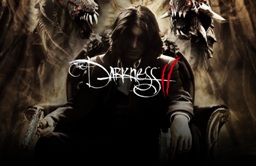 The Darkness IIwas a really cool project. I was familiar with the comic and loved the story and imagery. Jeff Edwards at Digital Extremes was looking at a few composers and liked my cues for various projects. I wrote a demo for them and they were sold.
The Darkness IIwas a really cool project. I was familiar with the comic and loved the story and imagery. Jeff Edwards at Digital Extremes was looking at a few composers and liked my cues for various projects. I wrote a demo for them and they were sold.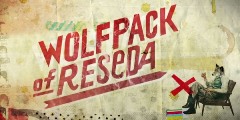 It was a great opportunity to work with director Chris Leone. He is extremely talented and someone who is going to continue creating great work for many years. I was introduced to him by the talented producing team of Gary Bryman and Steve Hein. The story combines two of my favorite genres, comedy and horror. I worked on the score with fellow composer Corey Jackson. We wanted to create a retro horror score, sometimes a little campy. It seemed to fit the series perfectly. There is talk of trying to take the series to a second season or another format, but nothing concrete.
It was a great opportunity to work with director Chris Leone. He is extremely talented and someone who is going to continue creating great work for many years. I was introduced to him by the talented producing team of Gary Bryman and Steve Hein. The story combines two of my favorite genres, comedy and horror. I worked on the score with fellow composer Corey Jackson. We wanted to create a retro horror score, sometimes a little campy. It seemed to fit the series perfectly. There is talk of trying to take the series to a second season or another format, but nothing concrete.
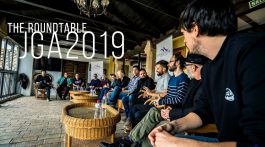
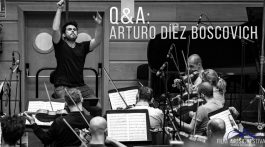
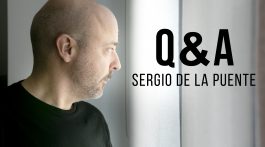
No hay comentarios